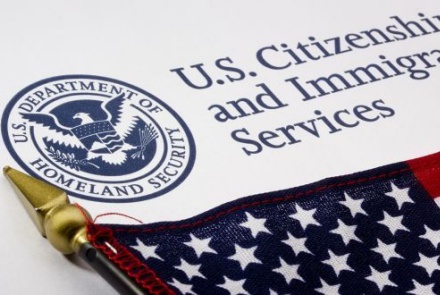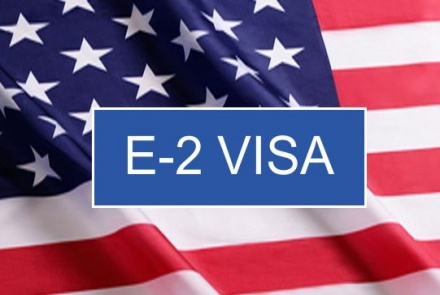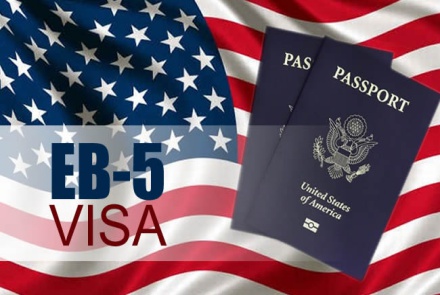About US Visas

An immigrant visa allows you to enter the United States and reside in the country on an ongoing basis, and is also a step towards obtaining a Green Card and citizenship. A foreigner who has received a Green Card has the right to work in the country without restrictions (in time and rights restricting to holders of non-immigrant visas). Having received an immigration type visa, the applicant has the right to file a petition for citizenship 5 years after the date of residence in the United States.
Currently, there are several options for business immigration type visas. The most common of these are four types of visas:
The EB-1c immigrant visa is designed for executives of international corporations moving to work in the office of a company (being a part of the corporation) registered in the United States. American and foreign corporations / companies must have a common controlling shareholder. Mandatory requirements are full or partial (> 50%) ownership of an American member of the corporation, which must exist and function in the United States for at least a year. The US member should have a minimum of 8 people, and available funds should be at least $ 70,000.
The deadline for considering a petition for an EB-1c visa is 8–9 months.
The EB-1c visa gives permission to enter and work in the United States while the petition is still pending. The applicant’s family members also receive green cards (upon receipt of a positive decision).
An EB-5 immigrant visa provides an opportunity to obtain a US green card through investments in your own business or in a project of the Regional Center. Money is invested for a period of 5-7 years, after which they are returned to the investor.
To apply for an EB-5 visa, the applicant does not need to have experience working in foreign companies or actively participate in project management. Mandatory requirements are:
- provision of investments in the amount of $ 500,000 or $ 1,000,000,
- disclosure of the source from which these funds were obtained,
- as well as the preparation of the company's business plan for 2.5 years, during which it is planned to create at least 10 new jobs.
In case of investment in the project of the Regional Center, all the obligations to prepare a business plan, investment memorandum, as well as job creation, are undertaken by the Regional Center.
After receiving a positive decision on issuing an EB-5 visa, family members of the applicant also receive Green cards.
EB-2 / EB-3 immigrant visas are intended for specialists with higher education, that is, with master's degrees, as well as for candidates and doctors of sciences. Visa EB-3 - for bachelors. Duration of consideration of applications for these visas - 8-9 months.
To apply for an EB-2 or EB-3 visa, a specialist does not need to invest funds or have experience working in international companies. However, you must complete the labor certification process at the US Department of Labor. The petition must be filed by the employer, who provides evidence of the availability of available funds for the payment of wages, as well as evidence that American candidates are not qualified to work in the declared position. If so, members of his family also receive Green Cards.
The EB-1a immigrant visa is intended for persons with outstanding abilities in the field of science, culture, sports or business, who have received recognition at the international or national level. The review procedure for this visa is usually 8–9 months, however, it is possible to expedite the receipt of a decision by up to 15 days.
When submitting a petition, the applicant does not need to have an invitation to work from an American employer or invest financially. It is necessary to provide documentary evidence of outstanding abilities in the field of art, science, sports or business, as well as prove the intention to continue to work in their field in the United States. The applicant’s family, after issuing a positive petition, also receives Green Cards, and you can live in the United States immediately after submitting documents to USCIS.
Non-immigrant visas allow you to enter the United States with your family, as well as live and work in the country for a certain period of time. Often, non-immigrant visas practically do not differ from immigrant visas, although they are limited in duration (unlike the Green Card, which is virtually unlimited). Such visas are usually issued to foreign specialists invited to work in American companies, business owners, as well as investors.
Despite the limited validity period, the requirements for non-immigrant visa applicants are softer than when applying for a Green Card. The holder of a non-immigrant visa is not required to stay in the United States for a specified minimum period, and, depending on the situation, may not pay taxes in the United States. In this case, the holder of a non-immigrant visa to the United States has the right to file a petition to issue a Green Card or an immigrant visa of the appropriate type during his stay in the country.
The most common are non-immigrant visas of the following types:
The L-1 non-immigrant visa is intended for executives and managers of international companies who transfer to a managerial position in an existing or re-opening American company, which should belong to the foreign company itself or to those individuals who own a controlling stake in this company. The term for a possible extension of a visa is up to 7 years. Consideration of the application when applying for an L-1 visa takes place within a month, but there is a way to expedite the process if necessary. If decision is positive, the Immigration Service also issues visas to the applicant’s family members.
Mandatory requirements for applying for a L-1 non-immigrant visa are to invest about $ 100,000 of your own funds in a new or existing company (at the time of filing the documents, the entire amount is not required), to open an office in the United States (with a lease for at least one year) and the availability of a business plan. In this case, the applicant is not required to disclose in detail the source from which the money invested in the company was received. If the existence and development of the business is successful, the applicant has the right to file a petition for the Green Card under the EB-1c program 1 year after the opening of the company when certain performance indicators are reached.
The E-2 non-immigrant visa provides foreign investors the opportunity to live and work in the United States of America. To submit a petition to the applicant for this visa, you do not need to have experience in managing the company, but you must have the citizenship of one of the countries participating in the agreement with the United States. You can extend your E-2 visa an unlimited number of times while the company continues to exist cost-effectively. The applicant’s family (spouse) and children under the age of 21 also receive a visa with the right to reside and study in the United States after the approval of his application.
The right to apply for an E-2 non-immigrant visa is granted to an investor who has opened a new or invested approximately $ 70,000 in an existing American company and owns a controlling stake in its shares. The presence of an appropriate agreement between the USA and the investor’s home country is also a requirement for submitting a petition for E-2 (Russia is not included in the list of such countries). Another mandatory requirement for applying for this visa is a five-year business plan for the development of a commercial enterprise. E-2 visa does not provide the right to receive a Green Card. You can go from the E-2 visa to the Green Card through the EB-5 visa, but this requires careful planning before submitting documents to the E-2.
H1-B non-immigrant visa is designed for professionals with a diploma of at least a bachelor's degree in a specialized field. This visa does not require investment and labor certification, but is issued at the invitation of an American employer for up to 6 years. If the decision is positive, the Immigration Service issues visas to the applicant’s family members.
Mandatory requirements for applying for an H1-B visa are higher education and an invitation from a company to a position that requires knowledge, possession of which is possible only with a specialized education. The holder of this type of visa has the right to file a petition for permanent residence in the United States under the EB-2 or EB-3 program.
The O ‑ 1 Non-Immigrant Visa is designed for individuals with outstanding abilities in their professional field — science, art, sports, or business. To apply for an O-1 visa, an invitation to work and an employment contract from an employer in the United States for a position in the applicant's field of specialization is required. Depending on the term of the employment contract, on the basis of which the applicant draws up a visa, a visa is issued for a period of up to 3 years with the possibility of extension. Upon receipt of a positive response by petition from the Immigration Service, visas are also issued to the applicant’s family.
The package of mandatory documents for the O-1 visa includes documentary evidence of outstanding abilities at the national or international level, a written opinion confirming the abilities from the relevant US industry organization and a job invitation from an existing American company. There is no direct transition from an O-1 visa to a Green Card. If the holder of the O-1 visa has sufficiently high qualifications and achievements, then he can apply for residence through the EB-1a visa program for extraordinary people, while obtaining an O-1 visa is not a prerequisite for applying for EB-1a.








